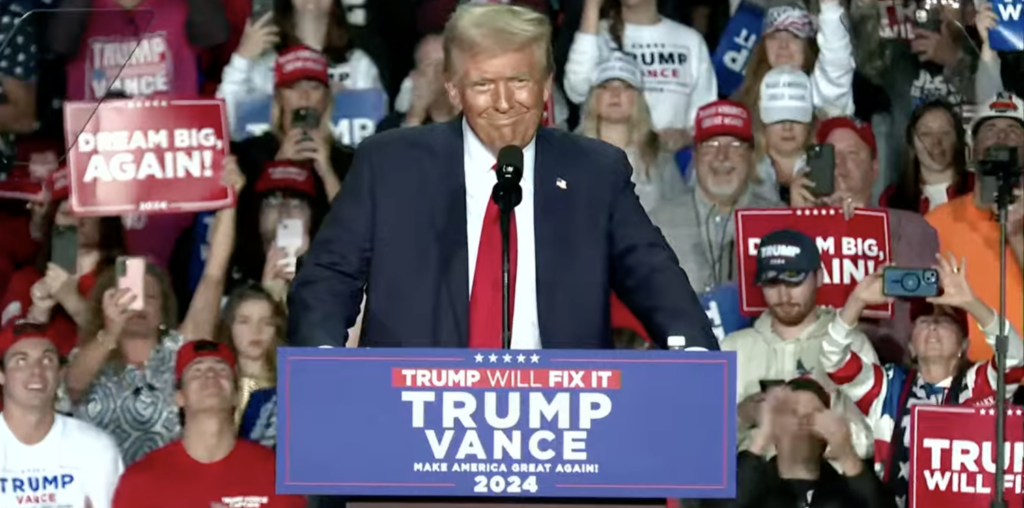
New York Times religion writers Elizabeth Dias and Ruth Graham offered this post-election assessment:
While politicians have often invoked God or cited passages from the Bible to make their case, the country is entering a new landscape, one where Mr. Trump is not only the leader of the Republican Party but also the de facto figurehead of conservative American Christianity.
Associated Press religion writer Peter Smith detailed this telling scene:
After former President Donald Trump gave his victory speech early Wednesday, at the Palm Beach Convention Center, dozens of his supporters gathered in a lobby to sing “How Great Thou Art,” reciting from memory the words and harmonies of a classic hymn, popular among evangelical Christians.
Meanwhile, the Deseret News’ Kelsey Dallas noted before the election:
Donald Trump’s record on religious freedom is complicated, in part because what he says about religion doesn’t match the tone or substance of his administration’s actual policy moves.
Dallas also pointed out:
Most Protestants and Catholics think Trump stands up for people with religious beliefs like theirs, but some have raised concerns about whether he prioritizes Christians over people from other faith groups.
In the past few days, I’ve talked to Christians who are over the moon about Trump’s election. They see his return to power as a crucial win in the decades-old culture war over issues such as abortion and transgender athletes playing in women’s sports. (Ironically, voters in a number of states backed abortion rights on Election Day, but it didn’t help Harris, as the Wall Street Journal reported.)
But not all believers celebrated Trump’s comeback. I’ve talked to other Christians — Harris voters — who are aghast at the notion that a convicted felon who paid hush money to a porn star is somehow a political messiah for followers of Jesus.
3. What will Trump’s election mean for the free press?
Pew Research’s weekly media newsletter noted Thursday:
Donald Trump’s reelection could be a pivotal point for the U.S. media. During the campaign, Trump and his allies kept up their adversarial stance toward journalists, threatening to prosecute those he perceives as enemies and strip TV networks of their broadcast licenses.
Republicans’ views toward news organizations have become much more negative since Trump’s first presidential campaign. Four-in-ten Republicans and GOP-leaning independents now say that they have some or a lot of trust in national news organizations, down from 70% who said this in 2016. Republicans also were much less likely than Democrats to say the news media did a good job covering both the 2020 and 2024 elections.
I’m a journalist. My son Keaton is a journalist who works as an investigative reporter for Oklahoma Watch. My wife, Tamie, is a journalist, although she is on long-term disability because of autoimmune diseases.
So this won’t shock you: I’m not a fan of Trump’s “fake news” trope or his labeling of journalists as “the enemy of the people.”
At the same time, as I’ve written previously, I recognize the gap between the news media and people of faith. Back in April, I delved into the political backlash over the “overhyped” use of the term Christian nationalism.
After Trump’s resounding win this week, New York Post columnist Karol Markowicz suggested that the media owe the president-elect an apology.

